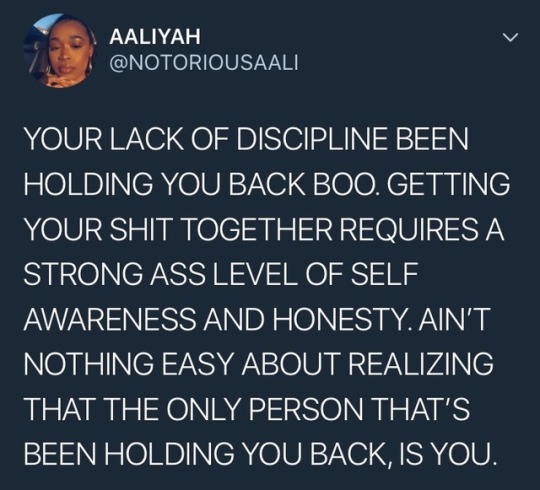"We real cool. We Left school. We Lurk late. We Strike straight. We Sing sin. We Thin gin. We Jazz June. We Die soon." — Gwendolyn Brooks
Don't wanna be here? Send us removal request.
Photo


Call your reps. Tell them to abolish ICE and prosecute the ICE officials responsible.
Thread: https://twitter.com/theradr/status/999798256644378625?s=21
Article: https://www.azcentral.com/story/opinion/op-ed/ej-montini/2018/05/22/immigration-children-separate-families-lost-kirstjen-nielson/631627002/
https://www.nytimes.com/2018/04/26/us/politics/migrant-children-missing.html
36K notes
·
View notes
Note
Sag mercury is like having a meme for a mind 😂
i want a fucking sagittarius mercury
90 notes
·
View notes
Link
It’s been nearly three months since many Google employees—and the public—learned about the company’s decision to provide artificial intelligence to a controversial military pilot program known as Project Maven, which aims to speed up analysis of drone footage by automatically classifying images of objects and people. Now, about a dozen Google employees are resigning in protest over the company’s continued involvement in Maven.
The resigning employees’ frustrations range from particular ethical concerns over the use of artificial intelligence in drone warfare to broader worries about Google’s political decisions—and the erosion of user trust that could result from these actions. Many of them have written accounts of their decisions to leave the company, and their stories have been gathered and shared in an internal document, the contents of which multiple sources have described to Gizmodo.
The employees who are resigning in protest, several of whom discussed their decision to leave with Gizmodo, say that executives have become less transparent with their workforce about controversial business decisions and seem less interested in listening to workers’ objections than they once did. In the case of Maven, Google is helping the Defense Department implement machine learning to classify images gathered by drones. But some employees believe humans, not algorithms, should be responsible for this sensitive and potentially lethal work—and that Google shouldn’t be involved in military work at all.
Historically, Google has promoted an open culture that encourages employees to challenge and debate product decisions. But some employees feel that their leadership no longer as attentive to their concerns, leaving them to face the fallout. “Over the last couple of months, I’ve been less and less impressed with the response and the way people’s concerns are being treated and listened to,” one employee who resigned said […]
In addition to the resignations, nearly 4,000 Google employees have voiced their opposition to Project Maven in an internal petition that asks Google to immediately cancel the contract and institute a policy against taking on future military work.
However, the mounting pressure from employees seems to have done little to sway Google’s decision—the company has defended its work on Maven and is thought to be one of the lead contenders for another major Pentagon cloud computing contract, the Joint Enterprise Defense Infrastructure, better known as JEDI, that is currently up for bids.
Employees’ demands that Google end its Pentagon contract are also complicated by the fact that Google claims it is only providing open-source software to Project Maven, which means the military would be able to still use the technology, even if Google didn’t accept payment or offer technical assistance.
Still, the resigning employees believe that Google’s work on Maven is fundamentally at odds with the company’s do-gooder principles. “It’s not like Google is this little machine-learning startup that’s trying to find clients in different industries,” a resigning employee said. “It just seems like it makes sense for Google and Google’s reputation to stay out of that.”
[…] One employee explained that Google staffers were promised an update on the ethics policy within a few weeks, but that progress appeared to be locked in a holding pattern. The ethical concerns “should have been addressed before we entered this contract,” the employee said.
Google has emphasized that its AI is not being used to kill, but the use of artificial intelligence in the Pentagon’s drone program still raises complex ethical and moral issues for tech workers and for academics who study the field of machine learning.
In addition to the petition circulating inside Google, the Tech Workers Coalition launched a petition in April demanding that Google abandon its work on Maven and that other major tech companies, including IBM and Amazon, refuse to work with the U.S. Defense Department.
“We can no longer ignore our industry’s and our technologies’ harmful biases, large-scale breaches of trust, and lack of ethical safeguards,” the petition reads. “These are life and death stakes.”
More than 90 academics in artificial intelligence, ethics, and computer science released an open letter today that calls on Google to end its work on Project Maven and to support an international treaty prohibiting autonomous weapons systems. Peter Asaro and Lucy Suchman, two of the authors of the letter, have testified before the United Nations about autonomous weapons; a third author, Lilly Irani, is a professor of science and a former Google employee.
Google’s contributions to Project Maven could accelerate the development of fully autonomous weapons, Suchman told Gizmodo. Although Google is based in the U.S., it has an obligation to protect its global user base that outweighs its alignment with any single nation’s military, she said.
“If ethical action on the part of tech companies requires consideration of who might benefit from a technology and who might be harmed, then we can say with certainty that no topic deserves more sober reflection—no technology has higher stakes—than algorithms meant to target and kill at a distance and without public accountability,” the letter states. “Google has moved into military work without subjecting itself to public debate or deliberation, either domestically or internationally. While Google regularly decides the future of technology without democratic public engagement, its entry into military technologies casts the problems of private control of information infrastructure into high relief.”
Executives at Google have made efforts to defend Project Maven to employees. At a meeting shortly after the project became public, Google Cloud CEO Diane Greene spoke in support of Project Maven, multiple sources told Gizmodo. More recently, Greene and other employees have hosted several sessions to debate and discuss the project. These sessions featured speakers who supported and opposed Maven and stressed the difficulty of drafting policy about the ethical use of machine learning, an attendee explained.
this is terrifying. i’m terrified.
8K notes
·
View notes
Text
My heart gets heavy thinking about the giant trash island in the ocean.
51K notes
·
View notes
Text
people who carry their groceries home on public transportation are stronger than any marine
81K notes
·
View notes
Text
The Palestine Reader
The following is a collection of articles, essays, and books on Palestine. These are not introduction texts to the question of Palestine or the Palestinain-Israeli “conflict”. If you need one read The Palestine-Israel Conflict by Gregory Harms and Todd Fery. Further, this is not an “unbiased” or “neutral” readng list. Everything listed below is counter-hegemonic. I feel absolutely no need to provide anything from the Zionist or Israeli point-of-view when that is the dominant narrative. With that said, I believe this provides a diverse, but in no means comprehensive, overview of the discourse on Palestine. A continuously updated page of this list can be found here.
On Theory
Orientalism by Edward Said
Orientalism Reconsidered by Edward Said
The Question of Palestine by Edward Said
Reading Said in Hebrew by Ella Shohat
Notes on the “Post-Colonial” by Ella Shohat
On History
History of Palestine by Dr. Mohsen Mohammed Saleh
Sabra and Shatila: September 1982 by Bayan Nuwayhed al-Hout
Peace and its Discontents by Edward Said
On Being Palestinian
What It Means to be Palestinian by Dina Matar
A Narrative of Palestinian Dispossession by Samia Costandi
The Palestinian Exile as Writer by Jabra I. Jabra
My People Shall Live by Leila Khaled
Memoirs, 1948 Part I by Fauzi Al-Qawuqji
Memoirs, 1948 Part II
Palestinian Identity and the Performance of Catastrophe by Ihab Saloul
On Zionism
Zionism from the Standpoint of its Victims by Edward Said
Zionism from the Standpoint of its Jewish Victims by Ella Shohat
Jewishness and the Critique of Zionism by Judith Butler
The Invention of the Mizrahim by Ella Shohat
Jewish Fundamentalism in Israel by Israel Shahak and Norton Mezvinsky
Jewish History, Jewish Religion by Israel Shahak
The Ends of Zionism by Joseph Massad
The Persistence of the Palestinian Question by Joseph Massad
On Imperialism and Settler Colonialism in West Asia by Jamil Hilal
The Hidden History of Zionism by Ralph Schoenman
How the Zionists Took Over Palestine by Adel Safty
Imperial Israel and the Palestinians by Nur Masalha
After Zionism by Antony Loewenstein and Ahmed Moor
On the Holocaust
Respecting the Holocaust by Howard Zinn
The Holocaust: Learning the Wrong Lessons by Boaz Evron
The Victimhood of the Powerful by Jennifer Peto
On Media
Propaganda, Perception, and Reality by William A. Cook
Israeli Cinema an interview with Ella Shohat
Israeli Cinema by Ella Shohat
Palestinian Cinema by Nurith Gertz and George Khleifi
On Al Nakba
The 1948 Ethnic Cleansing of Palestine by Ilan Pappe
The Ethnic Cleansing of Palestine by Ilan Pappe
The Saga of Deir Yassin
The Fall of Lydda by Spiro Munayyer
Returning to Kafr Bir'im
How Palestine became Israel by Stephen Hallbrook
The Palestinian Exodus of 1948 by Simha Flapan
Why Did the Palestinians Leave by Walid Khalidi
Selected Documents on 1948
The Limits of the New Israeli History by Joel Beinin
On Genocide
Genocide or Erasure of Palestinians by Kathleen and Bill Christison
Israel’s Slow-Motion Genocide in Occupied Palestine by Steve Lendman
Ongoing Palestinian Genocide by Gideon Polya
The Lessons of Violence by Chris Hedges
The Brutal Siege of Gaza Can Only Breed Violence by Karen Koning AbuZayd
The Olive Trees of Palestine Weep by Sonja Karkar
Slouching toward a Palestinian Holocaust by Richard Falk
Gaza is Dying by Patrick Cockburn
Israeli Immunity for Genocide by Andrea Howard
Palestinian Misery in Perspective by Paul De Rooij
A Slow, Steady Genocide an interview with Tanya Reinhart
Gaza’s Holocaust by Dr. Elias Akleh
Genocide Hides Behind Expulsion by Adi Ophir
The British in Palestine, A Conveniently Forgotten Holocaust by Robert Fisk
European Collusion in Israel’s Slow Genocide by Omar Barghouti
Genocide in Gaza by Ilan Pappe
Genocide Among Us by Curtis F. J. Doebbler
Bleaching the Attrocities of Genocide by Kim Petersen
The Rape of Palestine by William A. Cook
Israel Plots Another Palestinian Exodus by Jonathan Cook
Slow Motion Ethnic Cleansing by Uri Avnery
Disappearing Palestine by Jonathan Cook
The Problem With Israel by Jeff Halper
Gaza in Crisis by Noam Chomsky and Ilan Pappe
Drying Out the Palestinians
Israel’s Latest Assault on Gaza by Norman Finkelstein
To Gaza I Did Not Go by Gideon Levy
Gaza, the World’s Largest Open-Air Prison by Noam Chomsky
The Most Humane Little Checkpoint by Amira Hass
On BDS
BDS: Winning Justice for the Palestinian People
Why Boycott Israeli Universities?
The Necessity of Cultural Boycott by Ilan Pappe
Companies Supporting Israeli Occupation
On Solutions
Two-State Illusion by Ian S. Lustick
Relative Humanity: The Essential Obstacle to a One-State Solution by Omar Barghouti
Where Now For Palestine? by Jamil Hilal
23K notes
·
View notes
Text
“Neoliberalism construes even non-wealth generating spheres — such as learning, dating, or exercising — in market terms, submits them to market metrics, and governs them with market techniques and practices. Above all, it casts people as human capital who must constantly tend to their own present and future value.”
Wendy Brown
2K notes
·
View notes
Photo

Studio, Quay of Saint-Michel, 1916, Henri Matisse
Medium: oil on canvas
44 notes
·
View notes
Photo

These should not be controversial statements.
28K notes
·
View notes
Link
a reminder that we’re not bombing them for humanitarian reasons
6K notes
·
View notes
Quote
A witch is, actually, a successful (in the sense of surviving) deviant. You have a cultural, ideological, social, what-not pattern which is, for that society in question, normal (and, importantly, this is understood as a synonym for natural). Most people survive because they conform to these patterns, because they behave normally. […] But then suddenly you get a deviant which survives, and since it does not draw its support from the normal pattern, […] that deviant is understood as drawing its support from “unknown,” “supernatural” sources. […] If we cannot survive without our order, how can she [the witch] survive in solitude? Hers must be indeed a very powerful order to exist so independently, without all the inter cooperation and individual compromise which we have to go through to survive. And if it is so powerful, then it could destroy us. We must try to destroy it first.
Maya Deren, “From the Notebook of Maya Deren”, c.October 1947, vol. 14: pages 21–45 (via malglories)
7K notes
·
View notes














